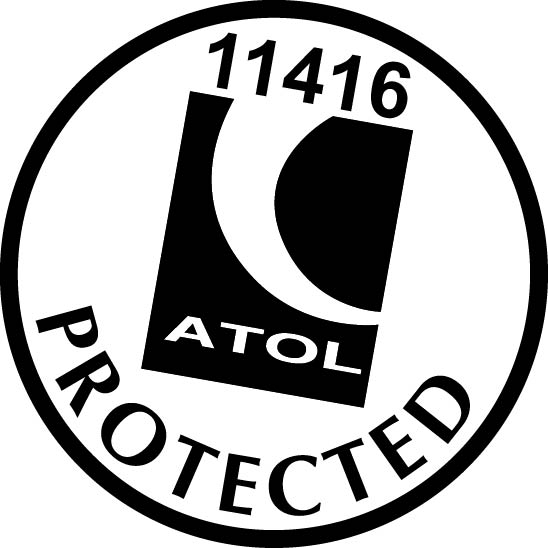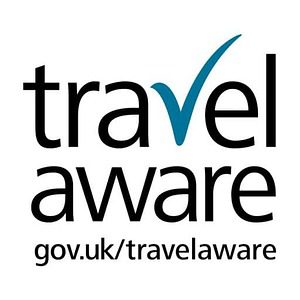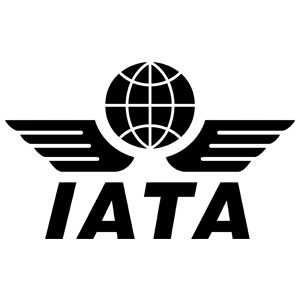- Info
- Enquire Now
Even today, travel agents play an important role in helping people plan their trips. In this article, we’ll cover all you need to know about “how to start a travel agency in the UK? “.
In fact in a post-covid era, travel agents have really proved their importance & supported even the customers who were left unanswered by the airlines & so-called online technology companies who call themselves travel companies.
Scope of being a successful travel agency in UK is all based on your past experience. This is not limited only to knowing about some destinations but running a travel agency entails sales, travel marketing, after sales, accounts & constant look out for the right suppliers & negotiating direct contracts.
Albeit, travel agency business in the UK is very much a matured regulated business to run where many trade & civil aviation authority compliances are to be followed.
For this reason, there are a number of UK government policies and regulations that you need to understand, grasp in order to determine whether or not you are ready to open a travel agency in the UK.
The fact is that people want the services we (as a travel agency) offer. If you’re here, you probably want to know how to start a travel agency in the UK. If that’s the case, welcome!
This handbook is designed to give you the information and direction you need to start and run your own travel agency in the UK.
But first things first, let’s talk about:
What is a travel agency?
Travel agents and tour operators have a lot in common, but there may be a lot of misconceptions about the difference between the two. In a nutshell, one company offers vacations while the other organises them.
A tour operator’s primary responsibility is to manage the logistics of a vacation, which includes anything from arranging flights and hotels to putting together complete itineraries.
FlightsPro, for example, is a customer-facing travel agency, we sell flights, holidays, package holidays & cater to many business travellers who need our services. It is the responsibility of the travel agency to only sell and manage these packages based on the needs of its customers. By working with numerous tour operators, travel agents may ensure that a vacation goes as planned by supplying the essential information and fees on behalf of their clients.
Why start a travel agency?
Despite the fact that many people have the ability to take matters into their own hands, they nevertheless prefer to rely on experts like a travel agency in the UK. The travel and tourism industry certainly has a place for travel agents. Here are the most common reasons why people use the services of a travel agent:
- Convenience of booking
- Saves them time
- Belief in the booking
- Experience travel managers
- Negotiated contracts
- Reliable & licensed
Now, coming back to how to start a travel agency in the UK, here are the following considerations that will help you set up a business of your own:
1. Financial Protection
Legally, you must deposit a bond to protect customers in the event that your business loses money. With a bank or insurance firm, you can do this.
Although you don’t need any formal training to work as a travel agent, becoming a member of a professional organisation shows clients and colleagues alike that you take your job seriously. Your business is adequately supported, and your consumers can rest easy knowing that their money is safe.
ATOL and ABTA are the two most well-known.
2. Travel Agency Type
The travel industry, like any other, has been segmented into a variety of subsectors and business models. Identify the one that you want to work for-like an independent travel agency, a homeworker, a travel consultant, a retail travel agent, or a consolidator.
However, starting your own independent travel agency is the best way to become your own boss and make all the decisions. Choosing this option gives you total authority over the people you work with, the employees you hire, and the company’s branding, for example.
Alternatively, you may choose to focus on a specific style of vacation or location. The more knowledgeable you are, the more trustworthy you will appear to customers. Rather than dispersing your information, you’ll be able to provide better service if you concentrate your efforts. As an added benefit, it will help you establish a distinct brand identity and unique selling proposition (USP). Specific places and travel specialties might also be included in the list of specialisations.
3. Make your financial plans.
People in the industry know that retail travel agencies have small profit margins and that a net profit of between 2% to 4% per year is considered highly respectable.
Your running expenses like salaries, rent, rates, marketing, IT, etc. must also be taken into account when calculating your annual sales and commissions (assuming a worst-case scenario). If you’ve been successful in trading for two to three years and you’re prepared to put in the work, consider starting your own travel agency if there is a profit in the first two or three years of trading.
4. Choose your trading name
Once you’ve made up your mind to go into business for yourself, you’ll need to choose a trading name that will appear on both your storefront and your website for the foreseeable future. Once you’ve seen what’s out there, talk to family and friends about their thoughts.
This is a big decision that you’ll have to live with for the rest of your life. Consider a franchise or managed agency from FlightsPro. To save money in the early years of a start-up, consider joining a managed agency network or a franchise group. By doing this, you can avoid paying bond fees from organisations like ABTA, ATOL, and credit card merchant services which are impossible to establish when you start, among others.
Your supplier payments are taken care of; you can dynamically bundle international getaways; and most importantly, you will have access to greater commission levels for a monthly fee that is often a proportion of either your turnover or your commissions.
Get in touch with our Agency sales manager on : agencysales@flightspro.co.uk
5. Locate a reputable CAA registered accountant.
There’s nothing wrong with having the ability to fill out your own monthly or annual profit and loss account, but it’s still necessary to find a reputable local accountant that can help with all of the above for a monthly charge. Regardless, you may rely on them for tax advice as well as assistance on how to start a travel agency in the UK. They will produce and sign off on your annual financial statements.
Costs involved
This is applicable to those looking to start an independent travel agency of their own:
1. Travel Trade Associations’ Applications and Resident status
Despite the fact that a licence and certification are required, it’s a good idea to have them to show your consumers that you’re a legitimate firm and that their money is safe.
ABTA: A net working capital surplus of £15k, a net asset surplus of £30k, and a share capital issue of £30k are required before you may apply. £600+VAT application charge, £1,000+VAT joining fee, and an annual subscription of £1,066, which covers the first £500,000 in gross turnover.
ATOL License: A small business with an ATOL application costs £1,161. Before submitting an application, double-check to make sure your company meets the requirements. Furthermore, the CAA will examine your company’s finances to ensure that they meet ATOL’s financial requirements.
Resident status is the next most important link in the chain of becoming a licensed travel agency in the UK. You are not barred from applying for any of the above licenses but in most cases your application will be declined if you are not a UK citizen or a permanent UK resident, making you loose the application fee & very valuable time.
2. Location
Rent will be significantly lower when launching a travel agency from a backup location rather than a prominent retail location. As a result, it doesn’t matter where you live.
3. Niche
A very well defined niche, and we are not talking about your geographic location as an agency, that you fully comprehend well and can bring something unique is essential to making money in this industry. For flights and hotels in particular, the margins are thin and the industry is dominated by companies with more experience than you. Focus instead on the added value.
4. Employees
People who have worked in the sector before and are looking for a discount on their holiday should be sought out. An office job’s wages are roughly the same as this one. Even if you don’t have a lot of experience, you should expect to pay more for your talents (like language).
5. Advertising
With any new business, getting your name out there is critical. Local newspaper classified ads, commercial television, online advertisements are all fine. Even the most cost-effective regular advertising is not inexpensive.
The power of word-of-mouth cannot be understated. This is not a business that requires repeat customers, therefore, be mindful of this fact. However, severe price rivalry means that individuals will constantly be looking for a better deal elsewhere. Editing and identifying service quality and value should be done even if your customers come back to you.
6. Internet
Even if you don’t always wish to buy online, people who do are used to shopping online. To draw in new customers and answer their most basic inquiries, use the Internet as a promotional tool or to provide further information.
Then, provide individualised service and advice in response to their inquiries. As a result, both you and your potential consumers will save time and effort while planning a holiday. It is possible to create a professional-looking website at an affordable price.
With years of experience, we are confident that we can help simplify the process of how to start a travel agency in the UK for you. Travel agencies’ margins are slim, and most people in the industry are aware of this. A good local travel business consultant can help you with all of the above for a monthly fee, so it’s essential to find one.
Get in touch with our travel specialists today on best tips on how to start a travel agency in the UK
How to Start a Travel Agency in the UK?
Email your query on agencysales@flightspro.co.uk
Basic Requirements to start a travel business in the UK :
- Travel trade experience
- Sales & marketing expertise
- Supplier contracts
- Complied & regulated trading license
- Financial plan




